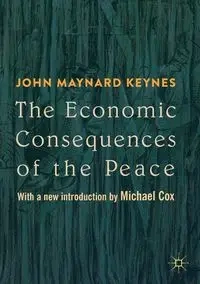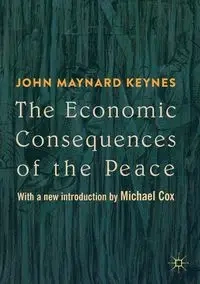The Economic Consequences of the Peace - John Maynard Keynes
- With a new introduction by Michael Cox
First published in December 1919, this global bestseller attacking those who had made the peace in Paris after the First World War, sparked immediate controversy. It also made John Maynard Keynes famous overnight and soon came to define how people around the world viewed the Versailles Peace Treaty. In Germany the book, which argued against reparations, was greeted with enthusiasm; in France with dismay; and in the US as ammunition that could be (and was) used against Woodrow Wilson in his ultimately unsuccessful bid to sell the League of Nations to an increasingly sceptical American public. Meanwhile in his own country the book provoked outrage amongst establishment critics - Keynes was even refused membership of the prestigious British Academy - while admirers from Winston Churchill to the founders of the LSE, Sidney and Beatrice Webb, went on to praise Keynes for his wisdom and humanity. Keynes may have written what he thought was a reasoned critique of the economics of the peace settlement. In effect, he had penned a political bombshell whose key arguments are still being debated today. The Economic Consequences of the Peace is now reissued by Keynes' publisher of choice with a new introduction from Michael Cox, one of the major figures in the field of International Relations today. Scholarly yet engaged and readable, Cox's introduction to the work - written a century after the book first hit the headlines - critically appraises Keynes' polemic contextualising and bringing to life the text for a new generation of scholars and students of IR, IPE, Politics and History. The original text and this authoritative introduction provide essential reading for anyone who wishes to understand the tragedy that was the twentieth century; why making peace with former enemies can be just as hard as winning a war against them; and how and why ideas really do matter.
EAN: 9783030047580




First published in December 1919, this global bestseller attacking those who had made the peace in Paris after the First World War, sparked immediate controversy. It also made John Maynard Keynes famous overnight and soon came to define how people around the world viewed the Versailles Peace Treaty. In Germany the book, which argued against reparations, was greeted with enthusiasm; in France with dismay; and in the US as ammunition that could be (and was) used against Woodrow Wilson in his ultimately unsuccessful bid to sell the League of Nations to an increasingly sceptical American public. Meanwhile in his own country the book provoked outrage amongst establishment critics - Keynes was even refused membership of the prestigious British Academy - while admirers from Winston Churchill to the founders of the LSE, Sidney and Beatrice Webb, went on to praise Keynes for his wisdom and humanity. Keynes may have written what he thought was a reasoned critique of the economics of the peace settlement. In effect, he had penned a political bombshell whose key arguments are still being debated today. The Economic Consequences of the Peace is now reissued by Keynes' publisher of choice with a new introduction from Michael Cox, one of the major figures in the field of International Relations today. Scholarly yet engaged and readable, Cox's introduction to the work - written a century after the book first hit the headlines - critically appraises Keynes' polemic contextualising and bringing to life the text for a new generation of scholars and students of IR, IPE, Politics and History. The original text and this authoritative introduction provide essential reading for anyone who wishes to understand the tragedy that was the twentieth century; why making peace with former enemies can be just as hard as winning a war against them; and how and why ideas really do matter.
EAN: 9783030047580

